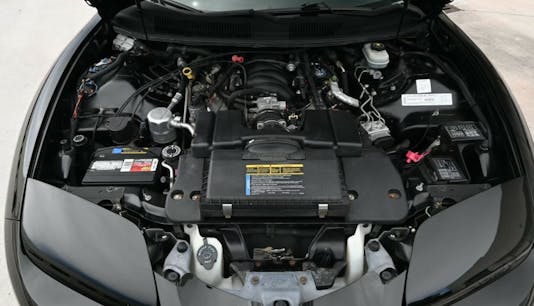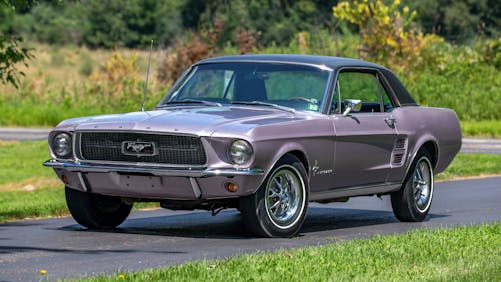Piston Slap: But should you actually care about piston slap?

(Shockingly, I get a fair number of questions pertaining to the actual phenomenon of piston slap in an engine. This has been going on since the series’ inception in 2009, even though my intention was to make the subject matter as diverse as your typical automotive forum. So here are a grab bag of piston slap questions, answered in true Piston Slap fashion. – SM)

sikelly writes:
I have a Ford Ranger (Euro-spec) with the 3.2 Diesel with 104,000 km. It has piston slap; how long will it last? The motor just had the heads replaced after getting too hot (EGR failed), so will heavier oil help? Is piston slap OK under load? (I use it for towing.)
Sajeev answers:
As we’ve discussed before, piston slap is usually a minor issue, but a very annoying one in terms of sound. Very rarely is it worth digging into the block to address the problem without doing a full rebuild.
I almost always recommend driving it until other problems surface. Heavier oil might be better for quelling piston slap, but you run the risk of not getting oil where it needs to be in a timely fashion. If you aren’t running a full synthetic oil, this would be the only change I’d make. Deal with the ’slap and move on with life.

Marie writes:
I own a 1999 Pontiac Firebird Formula (40,000 miles) that is seldom used. I have been told I have piston slap when starting the car and was told to let the car idle for a few minutes before driving. It seems to go away after using Mobil 1, and I always use 93 octane.
Sajeev answers:
Some LS motors have piston slap, but LS1 engines have a pretty minor case of it. You are doing everything right, so just like sikelly’s Ranger, I recommend you just deal with the ’slap and move on with life.

Maurice writes:
I have a 1967 Mustang (289), which sounds like it has piston slap. So, in the long term, am I doing damage, or do I just put up with the slapping noise?
Sajeev answers:
Try switching to synthetic motor oil. The advice doesn’t change—doesn’t matter if its a Ford or a Chevy, you gotta just deal with the ’slap and move on with life.
So what are the odds we can finally give this definitive answer to piston slap? Or is Piston Slap forever cursed with receiving questions about its namesake? You tell me, Hagerty Community, and email me more questions that are preferably not about this!
Have a question you’d like answered on Piston Slap? Send your queries to pistonslap@hagerty.com—give us as much detail as possible so we can help! Keep in mind this is a weekly column, so if you need an expedited answer, please tell me in your email.
***
Check out the Hagerty Media homepage so you don’t miss a single story, or better yet, bookmark it. To get our best stories delivered right to your inbox, subscribe to our newsletters.


Sorry Sajeev, but there is at least ONE more question about it:
What does it sound like, and more importantly;
what IS it, really, physically? What is the mechanical cause and description?
Thanks.
So I did some Youtubing and found that what most folks are calling piston slap is a noise that I would have described as valve train chatter. In most of the videos I saw, it does clear up as the engine warms up, which seems to confirm the diagnosis. I didn’t post any links because I am not 100% certain the diagnoses are correct. I have driven high-mileage vehicles for years, and nothing I heard in the examples was loud enough to cause me any concern, which is probably why I have never cataloged piston slap as something of concern. Generally speaking, there is something under my hood making more noise that I will get around to fixing one day
Ah, I guess it’s been a while since we’ve discussed the cause behind it: basically the piston to wall clearance is enough to cause the piston to literally knock around in the cylinder bore. It’s honestly not a big deal, because it goes away in most applications when the pistons heat up (especially in the case of aluminum pistons). Sure it can cause more engine wear, but will it be significant enough to be the reason why an engine needs a rebuild? Maybe, but odds are it will take a long time for anything to happen.
Here’s a video of the sound: https://www.youtube.com/watch?v=k0KN-8WfpvA&t=87s
I’ve had multiple cars, including my current ’08 Hemi Ram that developed piston slap with high mileage. I agree with you that there is no reason to be concerned as long as it decreases as the engine warms up. Just drive it. My Ram has 185K and has 1 piston that clicks when I start it cold. I’ve been told that it’s the piston rocking in the bore. Piston skirts tend to wear and also sort of bend in toward the center of the piston over many years of service. Comparing the piston diameter at the piston at the skirt to the diameter just below the rings gives a good idea whether or not the piston is worn.
Modern low-friction engine are typically more affected because of their short, low-friction piston skirts. That’s why this tends to be more of a mod/LS/Hemi issue. As was stated, once things warm up and expand, the engines quiet down.
Well, I hardly ever agree with Sajeev (wink-wink-nudge-nudge), but this time I’m going to. I don’t like telling people to just ignore noises, because noises are caused by something not optimal. But as several – including Reinhold – have pointed out, this noise is probably not worth the trouble it would take to erase. Tearing down an engine, correcting clearances, and reassembling are no small things. I suspect that a good many folks don’t have the facilities and/or tools to do all of the work, thus creating additional expense.
Engine noises can and do signal wear and potentially worse things to come. But if the piston slap goes away after warmup, the wear and damage is probably minimal and stops when the sound does. Therefore, it’s quite probable that something else is going to severely damage your engine before this does. If it persists after warming, or increases in volume, though, I’d reassess things.
In the Porsche 911 996 World an entire industry of engine rebuild services has arisen out of ‘Piston Slap’ in the M96 engine. What would be the advice to those people with Bore Scored cylinders and a ticking sound that doesn’t go away ?